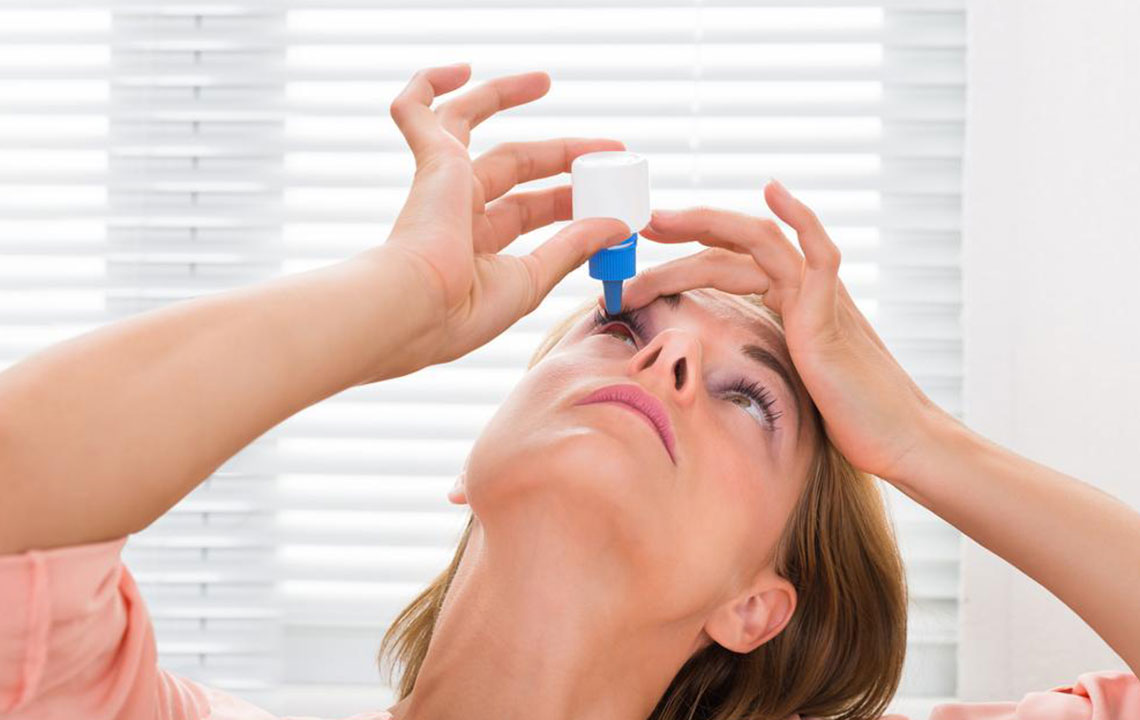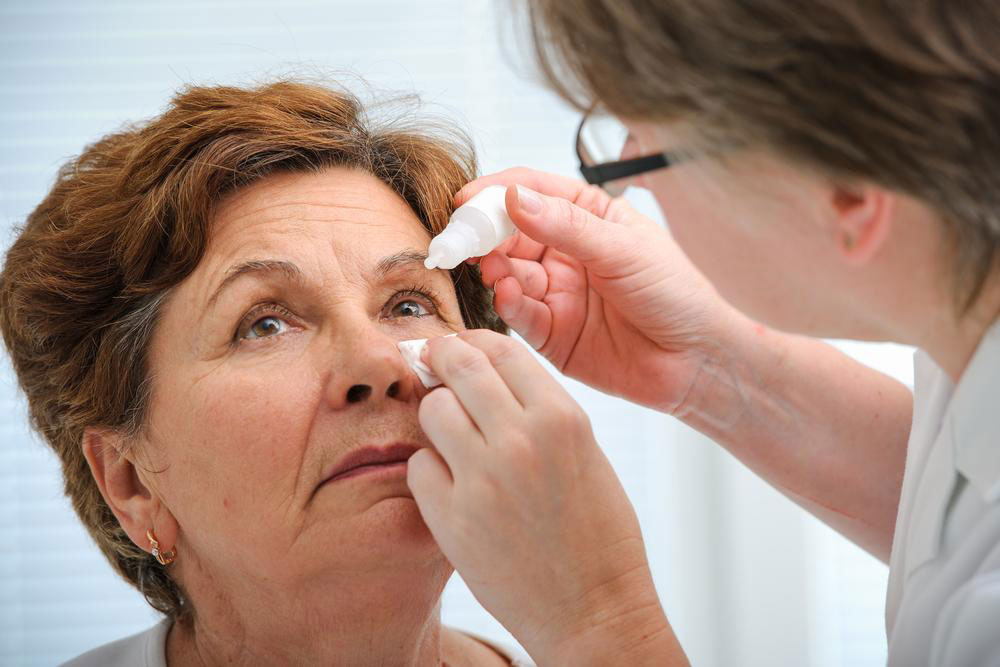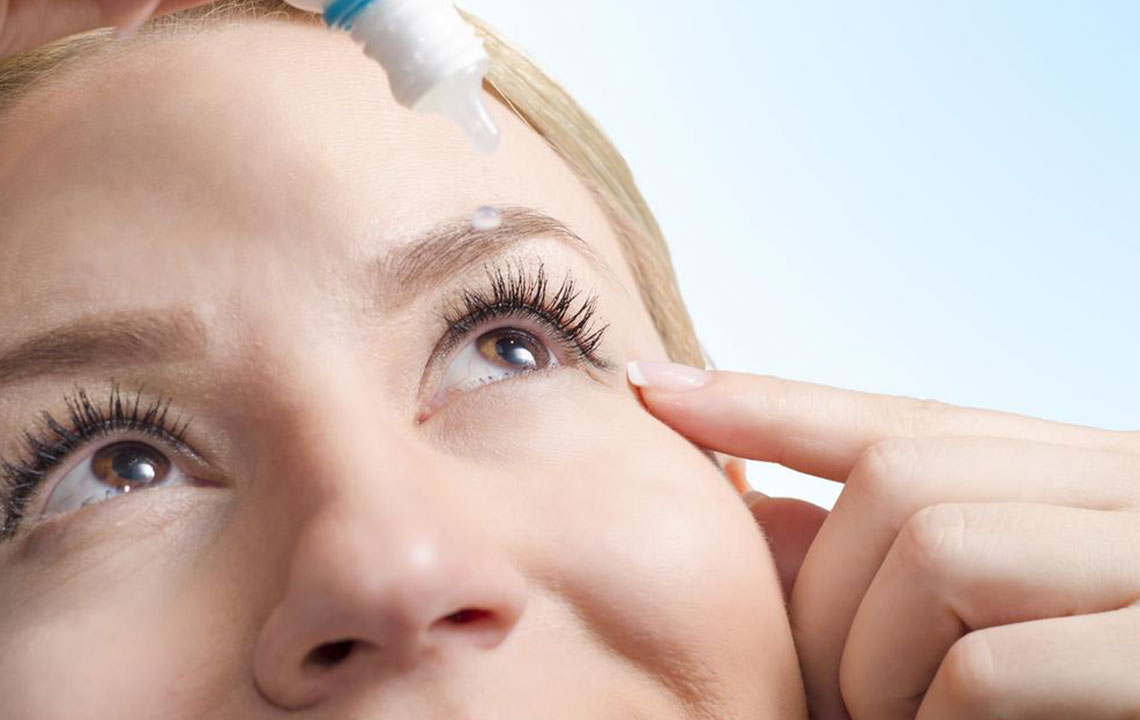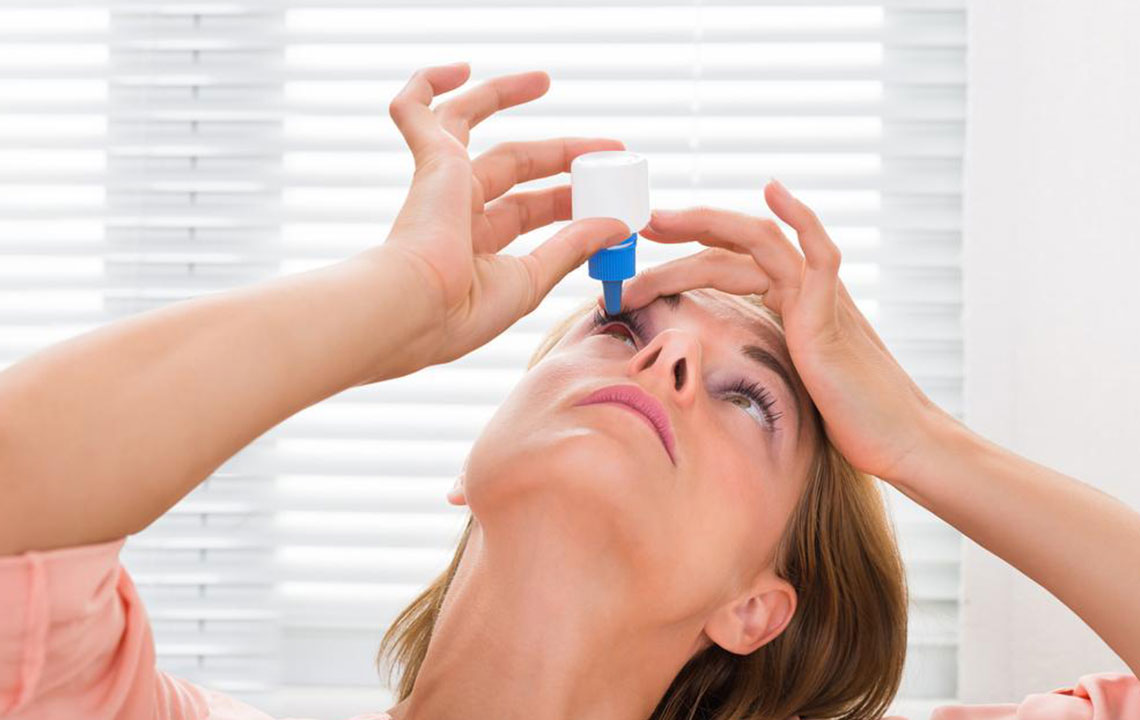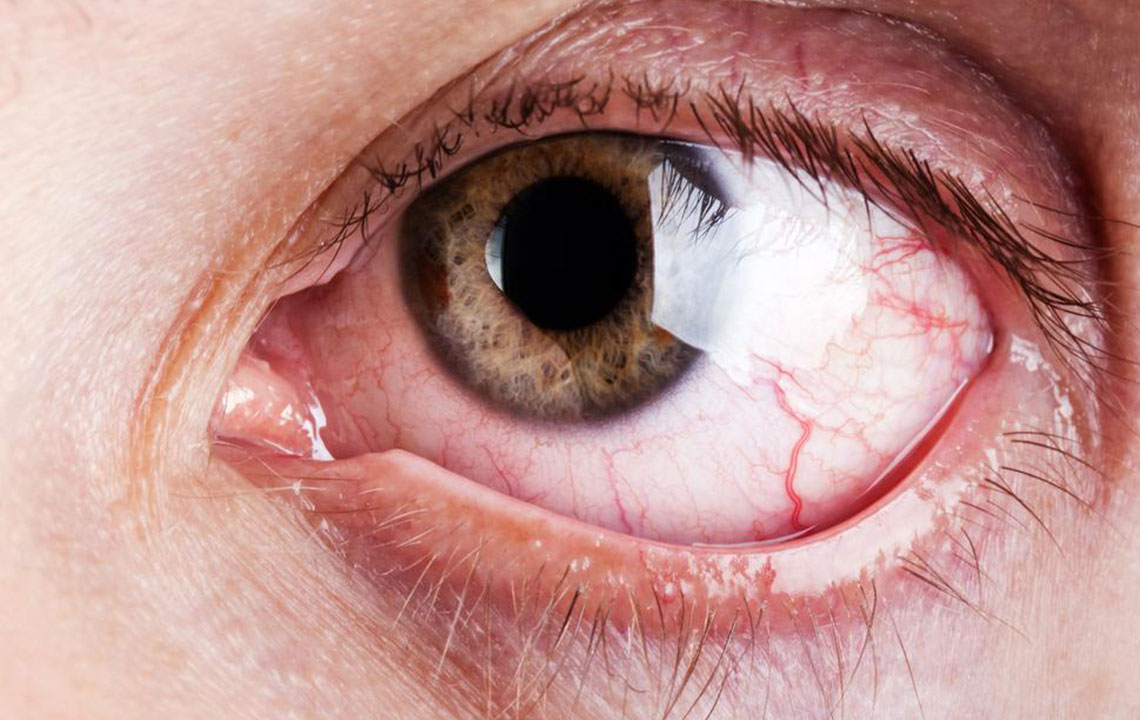Get your dry eyes treated
If you are one of those people who work consistently on laptops and PCs then you probably know what we are talking about. We are here to discuss dry eyes, its causes, symptoms, and some eye drop for dry eyes too. But a word of caution, we recommend you consult your ophthalmologist before using them.
Irrespective of your emotions or what you are feeling at any moment, your eyes are always wet with tears.

The tears that coat your eyes are a mixture of water that imparts moisture, oil for lubrication, mucus helping in even spreading, and antibodies proteins that keep infections at bay. The lacrimal glands present at the side of both of your eyes secrete tears and dry eyes usually mean that these are not functioning properly.
What are the symptoms of dry eyes?
If you have any of the following, there are good chances that you have dry eyes.
- Discomfort in eyes
- Eye strain
- Irritation
- Redness in eyes
- Sensitivity to light/stinging sensation
- Itching
A condition may occur where the lacrimal sac present in your eyes pushes out too many tears. This condition is called reflex tearing. This happens as a distress signal is sent to your nervous system telling it to lubricate your eyes. As these are not normal tears and mostly water they don’t coat your eyes the way normal tears do.
Why do you suffer from dry eyes?
The most basic and common reasons can be spending more time on your laptop or some other screen, spending more time in an air-conditioned place, using hair dryer etc. and these can be treated with regular application of eye drops. But there are other reasons as well, such as:
- Aging or menopause
- Side effect of some drugs or medicines
- Diseases like Sjogren’s syndrome, rheumatoid arthritis, and collagen vascular diseases
How do you treat dry eyes?
There are many options available that your ophthalmologist may suggest based on your eye condition. Here, we are listing out the kinds of treatments undertaken, but we strictly recommend you to not indulge in any self-diagnosis and self-treatment. It’s always good to see a doctor for the best treatment.
- Artificial tear drops or ointments : These are the most common of all treatments that are prescribed by doctors to treat dry eyes. Many of the drops are over the counter (OTC) drugs that are readily available. Your doctor would prescribe an ointment or tear drop based on the condition. If you have chronic dry eyes, your doctor would most likely recommend you an ointment that gives you better lubrication than a tear drop. You will also be told to keep using them for some time even after your eyes feel fine to retain the moisture balance.
- Punctal occlusion : In this treatment, the doctor usually closes the punctum of your eye. Usually, a temporary plug is employed that dissolves in time. If it works well, the doctor might go ahead with permanent plugs.
- Lipiflow : In this technique, heat and pressure are used to unclog the glands on your eyelids that produce oil in your tears. This is done to keep your tears from evaporating and lubricate your eyes.
- Testosterone cream : In some rare conditions, dry eyes can be a result of lack of testosterone in the oil glands present in eyelids. In these cases, doctors recommend that testosterone creams be applied on eyelids to improve the functioning of oil glands. Some of the testosterone creams that are recommended by doctors are cyclosporine, lifitegrast, etc.
- Nutritional supplements : Doctors might prescribe supplements like omega-3 fatty acids. Certain fish like salmon and vegetarian options like flaxseeds are a high source of omega-3 fatty acids and antioxidants.
- Eye drops : Your doctor can prescribe you eye drops for dry eyes symptoms like reflex tearing, lack of lubrication, etc.
- Restasis or Allergan: This might be recommended by the doctor to be used daily. It is a prescription drug used to lubricate your eyes. Though the therapeutic effect is not immediate and it takes some time to help your body produce tears. It takes minimum 90 days for it to work and some might feel burning sensation during the first few weeks.
- Xiidra : Again a prescription drug to treat dry eyes, it is aimed at reducing inflammation that is one of the most important symptoms of dry eyes. The recommended dose is two drops in each eye each day. Xiidra is known to have side effects like an altered sense of taste etc. and you are advised to use it only if your doctor recommends it to you.
- Gels and ointments: Gels and ointments like GenTeal Severe Dry Eye and Refresh Celluvisc stay in eyes for a longer time in order to treat dry eyes.
- Artificial tears: HypoTears, Moisture Eyes, and Computer Eye Drops for dry eyes are used when the issues are not severe. As these are OTC drugs, they are readily available.
In addition to these remedies and medicines recommended by your doctor, employ some home remedies, to treat dry eyes like blinking more frequently when sitting before any kind of screens like computer or TV, removing eye makeup thoroughly, cleaning your eyelids, and wearing sunglasses every time you step out in sun.
